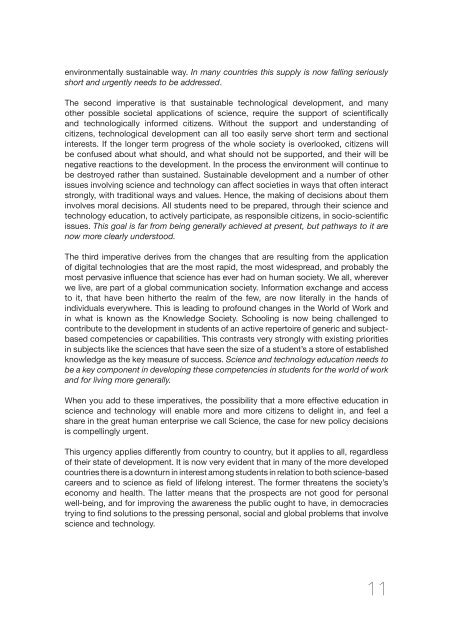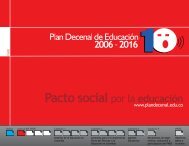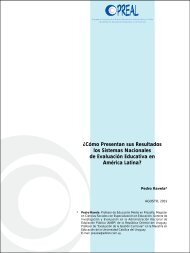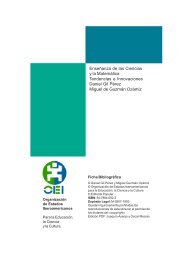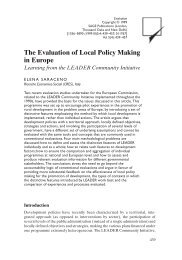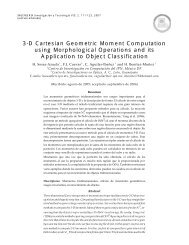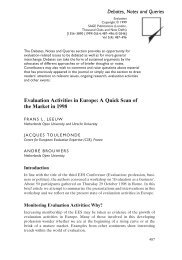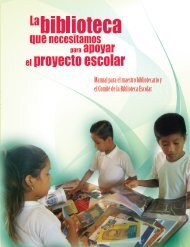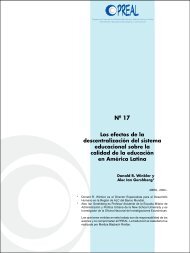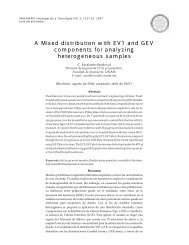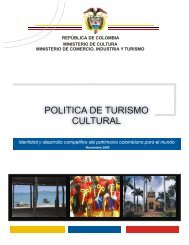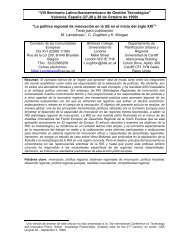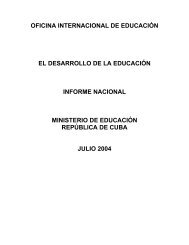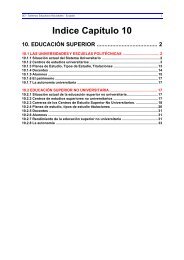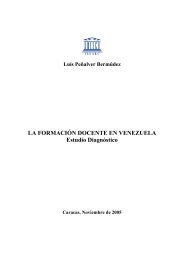Science education policy-making: eleven emerging issues; 2008 - OEI
Science education policy-making: eleven emerging issues; 2008 - OEI
Science education policy-making: eleven emerging issues; 2008 - OEI
Create successful ePaper yourself
Turn your PDF publications into a flip-book with our unique Google optimized e-Paper software.
environmentally sustainable way. In many countries this supply is now falling seriously<br />
short and urgently needs to be addressed.<br />
The second imperative is that sustainable technological development, and many<br />
other possible societal applications of science, require the support of scientifically<br />
and technologically informed citizens. Without the support and understanding of<br />
citizens, technological development can all too easily serve short term and sectional<br />
interests. If the longer term progress of the whole society is overlooked, citizens will<br />
be confused about what should, and what should not be supported, and their will be<br />
negative reactions to the development. In the process the environment will continue to<br />
be destroyed rather than sustained. Sustainable development and a number of other<br />
<strong>issues</strong> involving science and technology can affect societies in ways that often interact<br />
strongly, with traditional ways and values. Hence, the <strong>making</strong> of decisions about them<br />
involves moral decisions. All students need to be prepared, through their science and<br />
technology <strong>education</strong>, to actively participate, as responsible citizens, in socio-scientific<br />
<strong>issues</strong>. This goal is far from being generally achieved at present, but pathways to it are<br />
now more clearly understood.<br />
The third imperative derives from the changes that are resulting from the application<br />
of digital technologies that are the most rapid, the most widespread, and probably the<br />
most pervasive influence that science has ever had on human society. We all, wherever<br />
we live, are part of a global communication society. Information exchange and access<br />
to it, that have been hitherto the realm of the few, are now literally in the hands of<br />
individuals everywhere. This is leading to profound changes in the World of Work and<br />
in what is known as the Knowledge Society. Schooling is now being challenged to<br />
contribute to the development in students of an active repertoire of generic and subjectbased<br />
competencies or capabilities. This contrasts very strongly with existing priorities<br />
in subjects like the sciences that have seen the size of a student’s a store of established<br />
knowledge as the key measure of success. <strong>Science</strong> and technology <strong>education</strong> needs to<br />
be a key component in developing these competencies in students for the world of work<br />
and for living more generally.<br />
When you add to these imperatives, the possibility that a more effective <strong>education</strong> in<br />
science and technology will enable more and more citizens to delight in, and feel a<br />
share in the great human enterprise we call <strong>Science</strong>, the case for new <strong>policy</strong> decisions<br />
is compellingly urgent.<br />
This urgency applies differently from country to country, but it applies to all, regardless<br />
of their state of development. It is now very evident that in many of the more developed<br />
countries there is a downturn in interest among students in relation to both science-based<br />
careers and to science as field of lifelong interest. The former threatens the society’s<br />
economy and health. The latter means that the prospects are not good for personal<br />
well-being, and for improving the awareness the public ought to have, in democracies<br />
trying to find solutions to the pressing personal, social and global problems that involve<br />
science and technology.<br />
11


